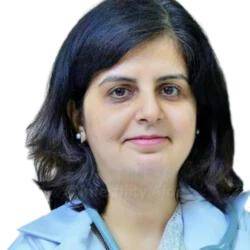Listed here are the top doctors for IVF in Gurgaon, India. Get your fertility tests and book a consultation with any of the doctors and find the right clinic for your infertility treatment.
Showing 1-1 of 1 results
Book a consultation or request a custom quote for your treatment by pressing for your preferred doctor. If you have any questions or need specific assistance, write to us at [email protected]
Reviewd by: Dr. Meenakshi, PhD
